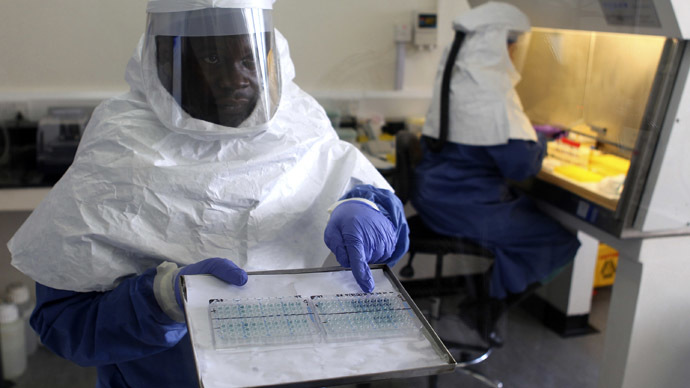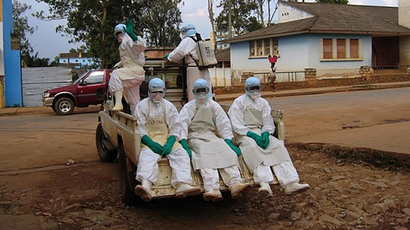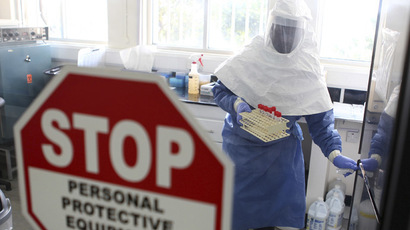Senegal seals borders as Guinea Ebola epidemic kills dozens

The Senegalese Interior Ministry has blocked the border with Guinea “until further notice” over the terrible outbreak of the deadly Ebola virus that has already killed 70 people during the last two months.
Eight cases of the virus have been confirmed recently, one of them fatal, the Guinean Health Ministry told AFP.
"The total number of suspected cases recorded from January to 28 March 2014 is 111 cases of hemorrhagic fever, including 70 deaths ... or a fatality rate of 63 per cent," the ministry said.
All the infected people were hospitalized in Guinea’s capital in an attempt to curb the spreading of the disease.
Most of the cases were recorded in southern Guinea, but the disease has spread to the capital since Wednesday.
The crossings at Kolda and Kedougou between Guinea and Senegal are constantly used by traders, in particular for weekly markets, so the move is set to affect regional trade relations.
The Ebola virus kills from 25 percent to 90 per cent of those who are infected, and no vaccine or treatment is available.
The decease’s symptoms include severe fever and muscle pain, weakness, vomiting and diarrhea. Afterwards, organs shut down, causing unstoppable bleeding.
The spread of the illness is said to be through traveling mourners touching to the bodies of the people who died of the disease, according to Doctors without Borders.
Traditional fruit bat soup was banned in Guinea, as the fruit bat is believed to be the host species.
International aid organizations have sent their employees to help the country battle the deadly virus.
On Friday, the EU granted 500,000 euros "to help to contain the propagation of the virus, which can kill up to 90 percent of affected people, in Guinea and neighbouring countries," Dakar office of the EU’s humanitarian arm ECHO said, AFP reported. The money is set to be used by the Doctors Without Borders (Medecins sans Frontieres) charity.














